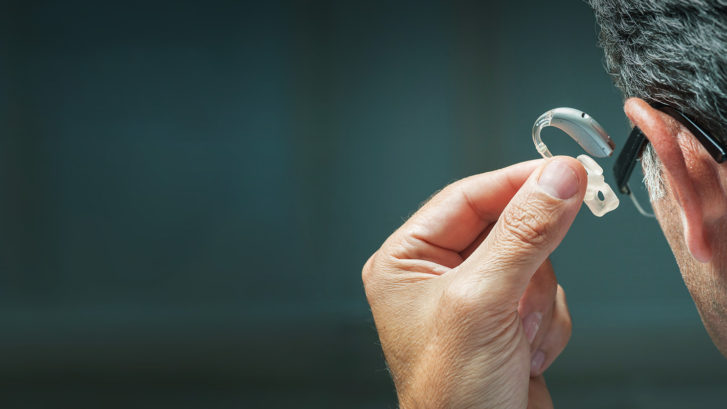Hearing Loss Projected to Double by 2060
A new study from John’s Hopkins University released this month projects that the number of adults suffering from hearing loss is expected to double, from 44.1 million people in 2020 to 73.5 million by 2060. That is 15% of adults ages 20 and older to 22.6%, according to a report published by the Journal of the American Medical Association (JAMA). The hearing loss studied was defined as “mild to moderate.”
The study’s author, Adele Goman, a post-doctoral research fellow at Johns Hopkins, attributes the increase to the aging population. In 2020, 55% of all adults with hearing loss will be 70 or older, and this study projects that rate to increase to 67%.
Your concierge physicians at MD 2.0 in Jupiter, FL, find this alarming. Hearing loss is associated with depression, anxiety, a higher rate of hospitalization and a higher rate of falls. Especially alarming for older adults is the possible mental decline that accompanies the social isolation caused by hearing loss. It becomes more difficult for sufferers to communicate at work, and at social and family activities; thus they are at increased risk of withdrawing from the very support systems they most need.
Hearing loss begins at a young age, and progresses as we age. Common causes include a genetic predisposition, congenital birth defects, injury or trauma to the ear, infections, aging, and ear wax or fluid in the ear.
By far, though, the greatest cause of hearing loss—which can occur at any age—is loud noise. This can include loud machinery such as airplanes, automobiles, lawn mowers, and leaf blowers, loud crowd noise, gunfire, and other explosions. Ear buds and headphones from various music devices are a particular risk for causing lifelong hearing loss, because of the concentrated delivery of sounds up to 120 decibels, equivalent to the sound level of a rock concert. (Jet engines deliver 140 decibels at takeoff.) Permanent hearing loss can occur after only 90 minutes of exposure to this level of sound.
Symptoms of hearing loss includes ringing, roaring, hissing or buzzing in the ear; difficulty understanding speech, especially in crowded or noisy places; listening to the TV or radio at increasing volumes; asking speakers to repeat themselves; and, muffled sounds, or a feeling that your ear is plugged.
What can you do to avoid hearing loss? Avoid loud noises, wear earplugs when you can’t, and see your primary doctor at MD 2.0 in Jupiter, FL with any concerns you may be having regarding your hearing.

